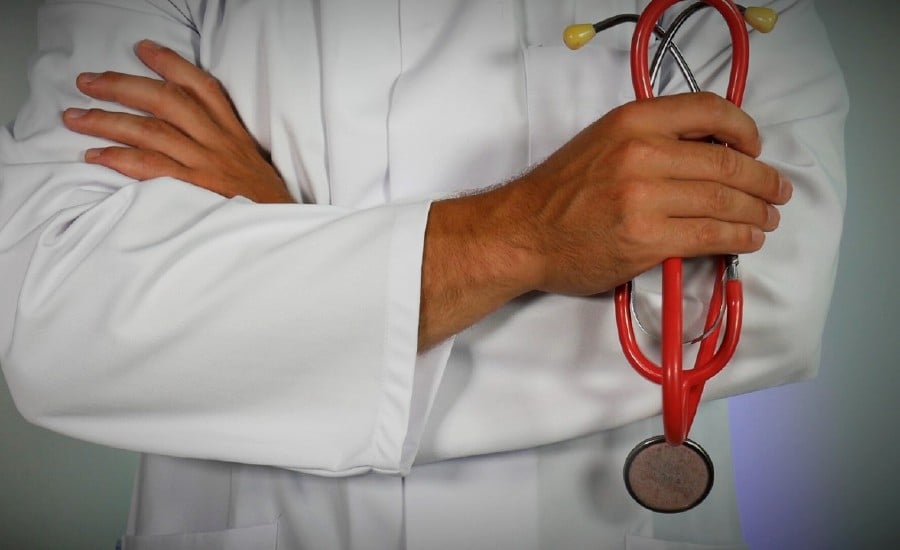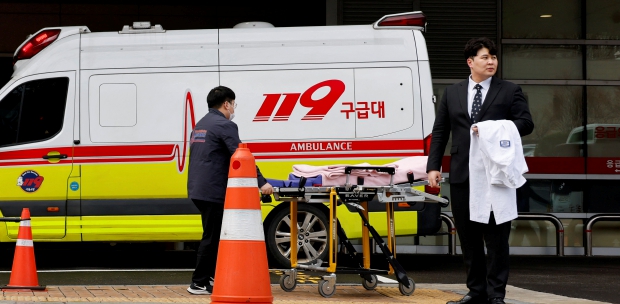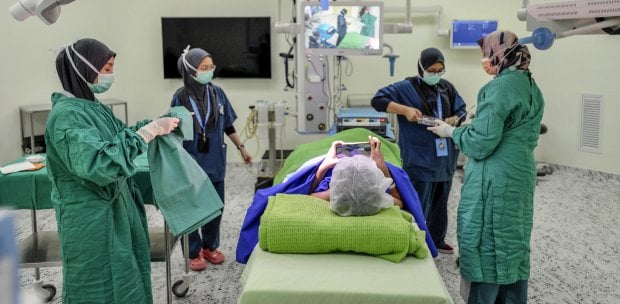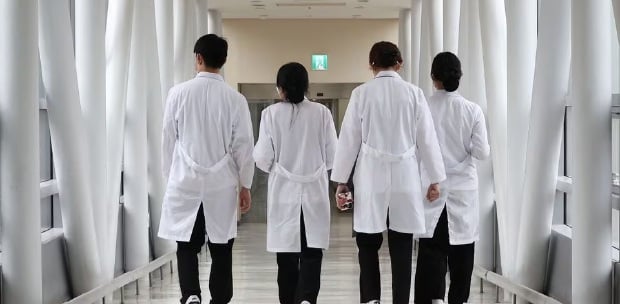KUALA LUMPUR: A public health activist and expert has claimed that the alleged bullying affecting some trainee doctors has been an "open secret" in most hospitals for many decades.
Datuk Dr Zainal Ariffin said while most senior health professionals were strict with their juniors with good intention and reasonable actions, he acknowledged that the matter might have gone too far, particularly in the treatment of house officers (HO).
He called on the Health Ministry, relevant authorities and the medical fraternity to immediately put an end to such a "culture".
"Each hospital should set up a committee comprising an administrator, specialist and junior doctors to look into such issues effectively.
"The HO must be provided an avenue or channel to not only report such an issue, but also communicate their problems through counselling sessions.
"The hospital administration as well as the ministry should not take lightly the complaints lodged by HOs and sweep things under the carpet.
"Stern action must be taken against the person concerned (found to have engaged in bullying or harassment) irrespective if they are senior doctors or specialists," said Dr Zainal, who is the Volunteers for Community Engagement and Empowerment for Covid-19 chairman.
Private hospital consultant Datuk Dr Kuljit Singh said any form of training, not limited to young healthcare professionals but also those in other sectors, should protect and focus on mental and emotional development, apart from harnessing one's skills.
The older and existing norms, he said, of giving training could no longer be used because the generation had changed and this required adaptability.
He stressed that bullying, if not studied or analysed properly — whether the issue was with the trainer or trainee — would leave a psychological and mental impact on young professionals.
"What we can see is most professional training programmes are very much focused on the technical part.
"Very often, little emphasis is given towards emotional and mental development, which has a big impact on current and future generations.
"We fail to understand that part of it. We emphasise mainly on the technical part of it. To mould a person into a good professional in future, it has to be from every aspect, mentally and emotionally.
"When there are elements of bullying, then there will always be some drawback or setback in the total professional development of a particular person."
Medical expert Datuk Dr N.K.S Tharmaseelan said it was time to end workplace bullying among trainee doctors, which had been raging for decades.
He said the recent incident involving a houseman who reportedly fell from his rented apartment was not the first.
"It has occurred occasionally and when there is a death, it becomes an issue to be 'looked into'. A supposed inquiry is 'enacted' and nothing happens or is done.
"The matter is laid to rest as there is 'no evidence to substantiate allegations' and the cycle begins until there is another incident."
He said some of those who suffered workplace bullying took their life, while others were traumatised for life.
"They become demoralised and need treatment for the rest of their life.
"Becoming a doctor takes years, a fortune is spent on fees and upkeep, in addition to hours of studying.
"All these efforts are 'snuffed out' by an inconsiderate senior who should have been a mentor and guide," said Dr Tharmaseelan, who is a former Malaysian Medical Association president.
The health experts also weighed in on the proposal by Malaysian Muslim Doctors Organisation president Dr Boi Saidi Abd Razak, who called for a review of the housemanship system.
"The posting, training, work schedule and method of assessment should be reviewed to suit current standards and environments, including those involving the socio-cultural aspect of the current generation," said Dr Zainal.
Dr Kuljit, however, said it was not necessary to review the existing module since the system involving six rotations had been tested.
"These six rotations are quite good. The most important is the methodology of the training programme. You must have a training programme where the trainers (seniors) are well qualified to provide training to housemen.
"They (trainers) must remember that there is generational change, and they must make some changes without compromising or decreasing the competency of the house officers."
Dr Kuljit proposed a check-and-balance mechanism to determine whether the methodology used by trainers was excessive.
"Identify the mentors or seniors who are into this bullying culture, and replace them rather than trying to revamp the whole system, which may not be the right thing to do.
"If you (housemen) feel you are being harassed, there should be an avenue without fear and favour for it to be rectified and the problem is ended the moment it starts."
In Malaysia, a trainee doctor has to undergo housemanship before being confirmed as a medical practitioner. Every houseman will go through six postings every four months.
The postings are in general medicine, general surgery, orthopaedics, paediatrics, obstetrics and gynaecology, and either in emergency medicine, anaesthesiology, psychiatry or family medicine.





